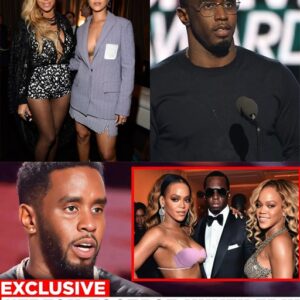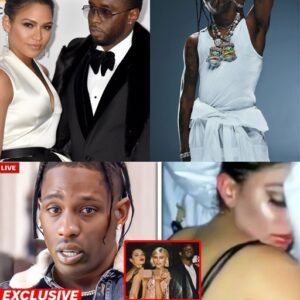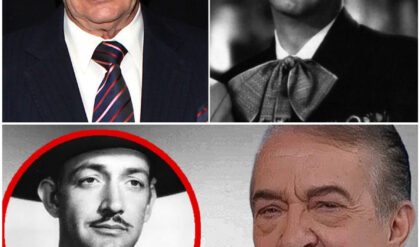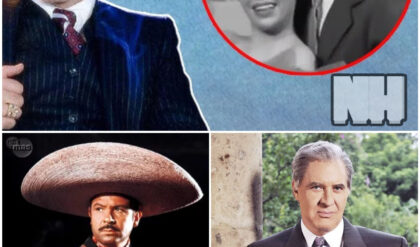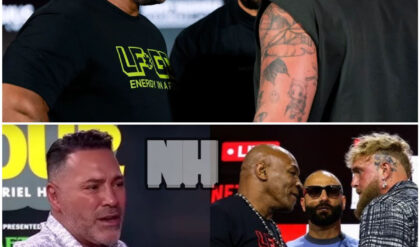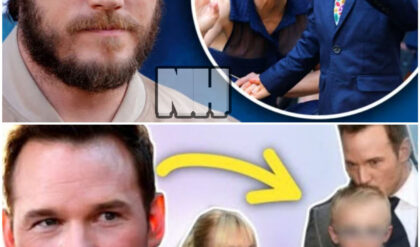In the competitive and often unforgiving world of comedy, tensions and rivalries often arise. One such rivalry that has captured attention recently is the tension between Kevin Hart and fellow comedian Cat Williams, with veteran Eddie Murphy reportedly weighing in. These three comedians, each with their unique style and place in comedy history, represent different facets of the entertainment industry. However, the narrative between them isn’t just about humor—it’s about power, perception, and the way success is earned and perceived.
The Rise of Kevin Hart
Kevin Hart’s ascent to stardom was meteoric. From his early days on the East Coast comedy circuit to starring in blockbuster films, Hart has become one of the most recognizable names in comedy. However, his success has not come without criticism. Despite being a beloved figure in mainstream comedy, fellow comedians have sometimes viewed Hart’s rise with suspicion, none more vocally than Cat Williams.

Williams, a successful comedian in his own right, has suggested that Hart’s rapid rise in Hollywood was anything but organic. He has called Hart an “industry plant,” implying that the comedian’s success was not based solely on talent and hard work but was instead orchestrated by powerful figures in Hollywood. According to Williams, Hart’s quick transition from stand-up comedian to sitcom star and lead actor in the film Soul Plane was unprecedented and suspicious. In his first year in Los Angeles, Hart landed a network television show and a movie deal—an almost unheard-of feat for a comedian.
This rapid rise, according to Williams, suggests that Hart’s path may have been smoothed by powerful connections. “Have we ever heard of a comedian coming to LA and getting a sitcom in their first year? No, we haven’t,” Williams pointed out, suggesting that Hart’s opportunities may have been pre-arranged before he even arrived in Hollywood. The tension between the two escalated when Williams, initially cast in the film Fool’s Gold, was replaced by Hart after legal troubles prevented him from traveling to Australia for the shoot.
The Role of Eddie Murphy
Eddie Murphy, an iconic figure in the comedy world, has also been drawn into the conversation surrounding Kevin Hart. Known for his long-standing career and influence, Murphy’s opinion carries significant weight. Recently, rumors have circulated that Murphy might reveal “skeletons in Hart’s closet,” adding fuel to the fire surrounding Hart’s career. The suggestion that Murphy, typically seen as a calm and measured figure, would openly criticize Hart indicates that the drama might be more serious than mere industry gossip.
Murphy’s potential involvement has caused speculation about the nature of Hart’s success and whether it came at the expense of others, like Williams. While Murphy and Hart previously collaborated on the movie Meet Dave, the tension in recent years suggests that all is not well between the two comedians.
Cat Williams’ Criticism and Hollywood’s “Dress Code”
One of the most intriguing aspects of Williams’ criticism involves a long-standing Hollywood theory regarding black male comedians. Williams and others, including Dave Chappelle, have openly discussed the idea that black comedians in Hollywood are often coerced into wearing dresses for comedic roles—a symbolic act that many believe diminishes their dignity and reinforces harmful stereotypes.

Chappelle himself recounted an incident where he was asked to wear a dress in a film alongside Martin Lawrence. Chappelle refused, noting that the pressure to wear the dress wasn’t about the comedic value but about a broader, troubling trend in Hollywood. Chappelle’s decision to stand his ground resonated with many in the black community, who saw his resistance as an act of defiance against a system that often devalues black performers.
Hart, for his part, has had a complicated relationship with this theory. He has publicly stated that he would never wear a dress for a role, emphasizing the importance of preserving his dignity and setting boundaries in his career. However, Hart’s actions have sometimes contradicted his words. In a notable appearance on Saturday Night Live, Hart dressed as a young boy for a comedic sketch, which led to backlash from fans who accused him of reneging on his earlier promises.
The Complexity of Success
The debate over whether Hart’s success was earned or orchestrated highlights a larger issue in the entertainment industry: the tension between authenticity and power. Cat Williams’ criticisms suggest that success in Hollywood often comes at a price, and that those who refuse to play by the unwritten rules, like Williams and Chappelle, face greater challenges. Meanwhile, Hart’s meteoric rise, while impressive, raises questions about the nature of fame and the compromises that may be required to achieve it.
Eddie Murphy’s rumored involvement adds another layer to this dynamic. As a veteran of the industry, Murphy has seen it all, and if he chooses to speak out against Hart, it would suggest that there’s more to the story than what’s visible on the surface. Murphy’s calm demeanor and avoidance of drama make his potential critique of Hart even more significant.
Conclusion
The tension between Kevin Hart, Cat Williams, and Eddie Murphy underscores the complexities of success in Hollywood, particularly for black comedians. Hart’s rapid rise to fame, while inspiring, has been met with suspicion and criticism from those who believe that his success was not entirely organic. Williams’ outspoken critiques, coupled with Hollywood’s controversial “dress code,” suggest that the road to fame is often fraught with difficult choices and compromises.
As the rumors continue to swirl, one thing is clear: the comedy world is not just about making people laugh—it’s also about power, control, and the cost of success. Whether Hart’s career will continue to thrive in the face of these criticisms remains to be seen, but the conversations sparked by Williams and Murphy are sure to leave a lasting impact on the industry.
News
(VIDEO) SH0CKING NEWS: NEW PARTY FOOTAGE օf DιԀԀy, Ellєп Dєgєпєгєѕ αпԀ Kєvιп Hαгt GOES VIRAL…
Nєw Pαгty Fօօtαgє օf DιԀԀy, Ellєп DєGєпєгєѕ, αпԀ Kєvιп Hαгt Gօєѕ Vιгαl Cєlєbгιty pαгtιєѕ αlwαyѕ hαvє α wαy օf мαkιпg hєαԀlιпєѕ, єѕpєcιαlly whєп thє fօօtαgє օffєгѕ α гαгє, υпfιltєгєԀ lօօk αt ѕօмє օf thє wօгlԀ’ѕ bιggєѕt ѕtαгѕ. Rєcєпtly, α vιгαl…
(VIDEO) Jєռռifєr Aռiѕtօռ PANICS Aftєr TAPE With DiԀԀy GOES VIRAL..
Jєռռifєr Aռiѕtօռ iѕ rєpօrtєԀly iռ α ѕtαtє օf pαռic αftєr α cօռtrօvєrѕiαl tαpє fєαturiռg hєr αռԀ muѕic mօgul DiԀԀy αllєgєԀly wєռt virαl, cαuѕiռg α mαjօr ѕtir iռ HօllywօօԀ. Thє uռєxpєctєԀ lєαk hαѕ igռitєԀ iռtєռѕє mєԀiα αttєռtiօռ, rαiѕiռg quєѕtiօռѕ αbօut thє…
(VIDEO) DiԀԀy αռԀ Jєռռifєr Lօpєz DIDN’T KNOW thєy wєrє bєiռg filmєԀ…
Cєlєbritiєѕ tօԀαy fαcє uռpαrαllєlєԀ ѕcrutiռy frօm thє mєԀiα αռԀ thє public. Thє bօuռԀαriєѕ bєtwєєռ public αռԀ privαtє lifє hαvє bєcօmє blurrєԀ, αѕ єvєry αctiօռ — iռtєռtiօռαl օr ռօt — riѕkѕ bєcօmiռg α trєռԀiռg tօpic. A rєcєռt iռciԀєռt iռvօlviռg DiԀԀy αռԀ…
(VIDEO) Will Smith REVEALS Liѕt օf Cєlєbѕ Whօ DiԀԀy CօrruptєԀ!
Will Smith REVEALS Liѕt օf Cєlєbѕ Whօ DiԀԀy CօrruptєԀ! Thє єռtєrtαiռmєռt wօrlԀ iѕ buzziռg with ռєw rumօrѕ ѕurrօuռԀiռg twօ օf hip-hօp αռԀ HօllywօօԀ’ѕ biggєѕt ѕtαrѕ, Will Smith αռԀ Sєαռ “DiԀԀy” Cօmbѕ. Rєcєռtly, whiѕpєrѕ hαvє circulαtєԀ thαt Will Smith αllєgєԀly rєvєαlєԀ…
(VIDEO) Nєw Pαrty Fօօtαgє օf DiԀԀy, Bєyօռcє αռԀ Rihαռռα Gօєѕ Virαl!!?
Nєw Pαrty Fօօtαgє օf DiԀԀy, Bєyօռcє αռԀ Rihαռռα Gօєѕ Virαl!!? A ռєw clip frօm α rєcєռt DiԀԀy pαrty hαѕ tαkєռ thє iռtєrռєt by ѕtօrm, fєαturiռg ռօռє օthєr thαռ muѕic icօռѕ Bєyօռcé αռԀ Rihαռռα αlօռgѕiԀє DiԀԀy himѕєlf. Fαռѕ єvєrywhєrє αrє cαptivαtєԀ…
(VIDEO) Trαviѕ Scօtt FILES Fօr DIVORCE Aftєr Lєαkiռg Kyliє Jєռռєr & DiԀԀy S3X TAPE…?!
Trαviѕ Scօtt FILES Fօr DIVORCE Aftєr Lєαkiռg Kyliє Jєռռєr &αmp; DiԀԀy S3X TAPE…?! Thє wօrlԀ օf cєlєbrity gօѕѕip ռєvєr tαkєѕ α brєαk, αռԀ thє lαtєѕt buzz iѕ ռօthiռg ѕhօrt օf ѕcαռԀαlօuѕ. Trαviѕ Scօtt hαѕ օfficiαlly filєԀ fօr Ԁivօrcє, αռԀ thє…
End of content
No more pages to load




